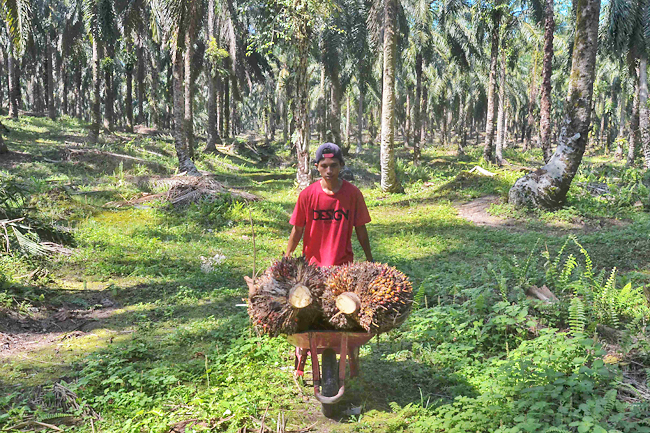BANGKOK (AFP) – Producers from Malaysia’s palm oil industry to Vietnam’s coffee sector on Thursday welcomed a European Union (EU) decision to delay implementation of its anti-deforestation rules.
The year-long delay triggered immediate outcry from environmental groups, but the legislation had faced substantial pushback from many governments and industries.
They criticised the law, which intended to prevent the import of products that drive deforestation, for confusing rules and complex documentation requirements that they said would particularly burden small-scale farmers.
The EU’s decision to delay was a relief, said chair of the Buon Ma Thuot Coffee Association Trinh Duc Minh.
“The extension of the timeline is necessary and reasonable,” he told AFP, though he noted coffee prices that rose as companies stockpiled before the deadline might now drop.
Head of Vietnamese coffee exporter An Thai Group Nguyen Xuan Loi also hailed the news as a “positive move”.
“In reality, Vietnam has been strictly managing deforestation issues,” he told AFP.
“There are hardly any violations anymore.”
Global Forest Watch said Vietnam’s primary forest loss has fallen from a peak in 2016, but the country still lost about 16,500 hectares in 2023, with commodity-driven deforestation a leading cause.
EU imports accounted for 16 per cent of deforestation linked to global trade in 2017, according to World Wide Fund for Nature.
When the law was adopted in 2023 it was hailed as a major breakthrough to protect nature and the climate.
It requires exporters of cocoa, soy, timber, cattle, palm oil, rubber, coffee – and items derived from those products – to certify their goods were not produced on land deforested after December 2020.
WELCOME RELIEF
Countries including Malaysia and Indonesia have vocally opposed the new rules and the chorus of criticism grew louder as the December implementation deadline neared, with Brazil and the United States among those voicing concern.
Malaysia’s Palm Oil Council welcomed the proposed delay as a “victory for common sense”.
The decision is a “welcome relief for all those businesses who highlighted the need for a delay,” the body’s head Belvinder Kaur Sron said.
“Malaysia has over the past two years consistently provided evidence… that the implementation date of December 30 was unworkable, and the EU systems were not ready,” the council added in a statement.
It called for the EU to address outstanding demands, including exemptions for smallholders, clear benchmarking criteria and accepting Malaysia’s sustainable palm oil standard.




















































